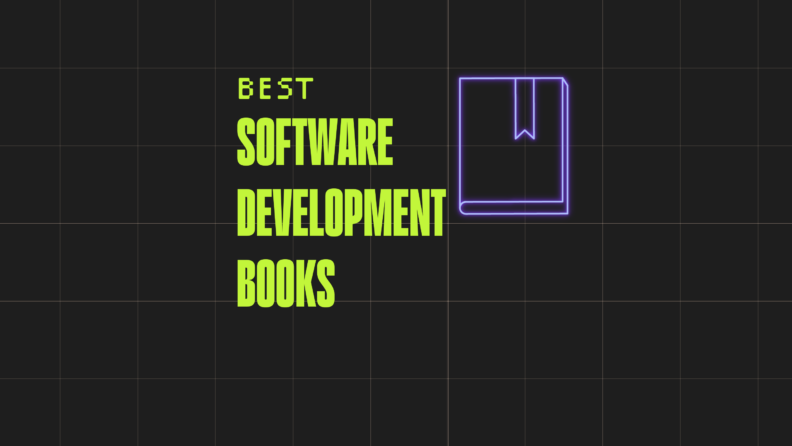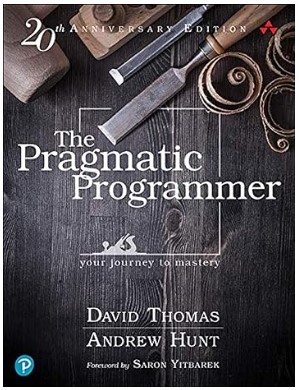Diving into software development books is more than just learning about coding. From my towering digital stack of programming books, aka Amazon, I've explored the basics and more intricate topics like operating systems and DevOps. Whether you want to understand Python, explore real-life case studies in working with legacy code, or immerse yourself in the art of computer programming, books provide a solid foundation.
I've curated this list of the best software development books to help you sift through the chaos and button up your skills.
17 Best Software Development Books Shortlist
Here are my picks for software development books tailored to address any need.
- Clean Code: A Handbook of Agile Software Craftsmanship by Robert C. Martin
- The Pragmatic Programmer: Your Journey to Mastery by Andrew Hunt and David Thomas
- Design Patterns: Elements of Reusable Object-Oriented Software by Erich Gamma, Richard Helm, Ralph Johnson, and John Vlissides
- Code Complete: A Practical Handbook of Software Construction by Steve McConnell
- Code: The Hidden Language of Computer Hardware and Software by Charles Petzold
- Introduction to the Theory of Computation by Michael Sipser
- You Don't Know JS (book series) by Kyle Simpson
- Refactoring: Improving the Design of Existing Code by Martin Fowler
- Continuous Delivery: Reliable Software Releases through Build, Test, and Deployment Automation by Jez Humble and David Farley
- The Mythical Man-Month: Essays on Software Engineering by Frederick P. Brooks Jr.
- Domain-Driven Design: Tackling Complexity in the Heart of Software by Eric Evans
- Patterns of Enterprise Application Architecture by Martin Fowler
- Cracking the Coding Interview by Gayle Laakmann McDowell
- Effective Java by Joshua Bloch
- Building Microservices: Designing Fine-Grained Systems 2nd edition by Sam Newman
- Test Driven Development: By Example by Kent Beck
- Programming Pearls by Jon Bentley
Overviews Of The 17 Best Software Development Books
1. Clean Code: A Handbook of Agile Software Craftsmanship by Robert C. Martin
Summary:
In this classic piece, Robert C. Martin, known widely as Uncle Bob, underscores the importance of writing clear, readable, and maintainable code. He delves into the very essence of professional software development books, detailing the difference between code that merely works and code that shines.
What You'll Learn:
The essence of writing clean code, recognizing source code smells, techniques for refactoring, and the practices of true software craftsmanship.
Why You Should Read It:
To elevate your coding skills beyond functionality, reaching the realm of artistry and professional craftsmanship.
Quote From The Book:
“Truth can only be found in one place: the code.”
About The Author:
Robert C. Martin, affectionately known as Uncle Bob, is a software engineering luminary. You can follow him on Twitter, or explore his contributions on his personal website.
2. The Pragmatic Programmer: Your Journey to Mastery by Andrew Hunt and David Thomas
Summary:
A treasure trove of best practices, "The Pragmatic Programmer" offers seasoned advice on various aspects of software development, pushing developers to think critically, learn continuously, and code pragmatically.
What You'll Learn:
Key principles of pragmatic programming, tips for effective debugging, code organization, and how to continuously improve as a software developer.
Why You Should Read It:
To gain a comprehensive perspective on software development books, from coding techniques to career strategies.
Quote From The Book:
“Don’t leave “broken windows” (bad designs, wrong decisions, or poor code) unrepaired. Fix them as soon as you see them.”
About The Author:
Andrew Hunt and David Thomas are influential voices in the software industry. See Andrew's full bio on Amazon. Further insights can be gathered from their joint website.
3. Design Patterns: Elements of Reusable Object-Oriented Software by Erich Gamma, Richard Helm, Ralph Johnson, and John Vlissides
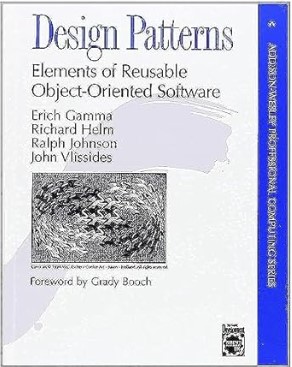
Summary:
This groundbreaking book offers a deep dive into 23 classic design patterns, which aid in solving recurring design problems. By exploring the core of object-oriented software design, it provides a shared vocabulary for developers.
What You'll Learn:
The core principles behind 23 classic design patterns, their implementations, and the rationale behind their use.
Why You Should Read It:
To build a solid foundation in object-oriented design and to ensure your software is scalable, maintainable, and efficient.
Quote From The Book:
“Design patterns are descriptions of communicating objects and classes that are customized to solve a general design problem in a particular context.”
About The Author:
Erich Gamma, Richard Helm, Ralph Johnson, and John Vlissides, collectively known as the Gang of Four, are giants in software engineering. While John Vlissides has since passed away, you can connect with Erich Gamma on his LinkedIn.
4. Code Complete: A Practical Handbook of Software Construction by Steve McConnell
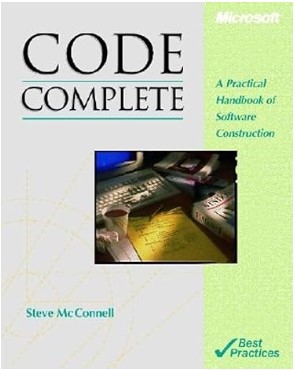
Summary:
Steve McConnell's "Code Complete" is the go-to guide for the art and science of software construction. Drawing from numerous sources, the book provides tried-and-true practices that stand the test of time, aiming to help developers craft high-quality software.
What You'll Learn:
The intricacies of software construction, effective coding techniques, debugging practices, and the fundamental principles that govern software design.
Why You Should Read It:
It serves as a comprehensive guide that covers both the theory and practical aspects of software development, essential for anyone striving for excellence in the field.
Quote From The Book:
“Good code is its own best documentation. As you’re about to add a comment, ask yourself, ‘How can I improve the code so that this comment isn’t needed?’”
About The Author:
Steve McConnell is an acclaimed author and expert in software engineering. Connect with him on Twitter, and discover more about his contributions on his personal website.
5. Code: The Hidden Language of Computer Hardware and Software by Charles Petzold
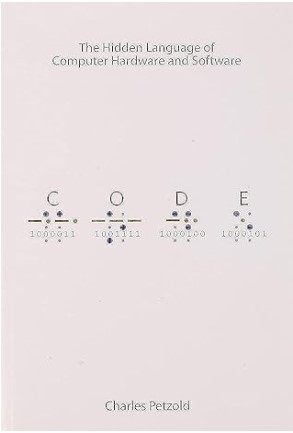
Summary:
Venturing into the depths of how computers function, Petzold unravels the mysteries behind the binary language. The book bridges the gap between hardware and software, elucidating the intricate dance between logic circuits and coding.
What You'll Learn:
The fundamental workings of computers, from basic logic gates to the high-level languages we use to communicate with machines.
Why You Should Read It:
To gain a profound understanding of the interplay between hardware and software and appreciate the marvel of computer systems.
Quote From The Book:
“What do flashlights, the British invasion, black cats, and seesaws have to do with computers? In CODE, they show us the ingenious ways we manipulate language and invent new means of communicating with each other.”
About The Author:
Charles Petzold is a celebrated writer renowned for his expertise in Windows application programming. Find more about Charles on his personal website.
6. Introduction to the Theory of Computation by Michael Sipser
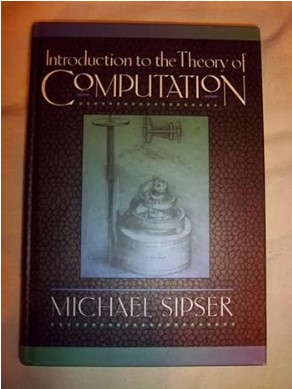
Summary:
A cornerstone in the study of theoretical computer science, Sipser's book delves deep into the mathematical aspects of computation. From automata theory to computational complexity, it provides a rigorous exploration of the subject.
What You'll Learn:
Theoretical foundations of computer science, including formal languages, automata, computability, and complexity theory.
Why You Should Read It:
To grasp the underpinnings of computation, ensuring a thorough understanding of the limits and potential of computer systems.
Quote From The Book:
“A computer is a bounded automaton: its speed, memory size, and data word length are all finite.”
About The Author:
Michael Sipser is a renowned professor in the field of theoretical computer science. You can find out more about his academic contributions through the MIT website.
7. You Don't Know JS (book series) by Kyle Simpson

Summary:
Kyle Simpson's series is a deep dive into JavaScript, taking readers from the basics to the nuances of the language. Each volume in the series tackles different aspects, ensuring a comprehensive understanding of JavaScript.
What You'll Learn:
The intricacies of JavaScript from scope and closures to asynchronous programming, reveal layers of the language often overlooked.
Why You Should Read It:
To truly master JavaScript beyond the surface, grasping both the beauty and quirks of this dynamic language.
Quote From The Book:
“The curse of the monad is that once you get the epiphany, once you understand - 'oh, that's what it is' - you lose the ability to explain it to anybody else.”
About The Author:
Kyle Simpson is a passionate educator in the world of JavaScript and the open web. Dive deeper into his thoughts on Twitter, or explore his work on his personal website.
8. Refactoring: Improving the Design of Existing Code by Martin Fowler
Summary:
Fowler's masterpiece stands as a beacon for developers looking to transform their code from good to great. The book outlines strategies and techniques to refactor code while ensuring it remains functional.
What You'll Learn:
Methodologies and examples of improving the structure of an existing codebase, enhancing its readability and maintainability without changing its behavior.
Why You Should Read It:
To equip yourself with a toolkit for systematically enhancing the quality and design of existing code.
Quote From The Book:
“Any fool can write code that a computer can understand. Good programmers write code that humans can understand.”
About The Author:
Martin Fowler is a prominent author and speaker in software development books. Connect with him and stay updated via Twitter, or delve into his extensive contributions on his personal website.
9. Continuous Delivery: Reliable Software Releases through Build, Test, and Deployment Automation by Jez Humble and David Farley
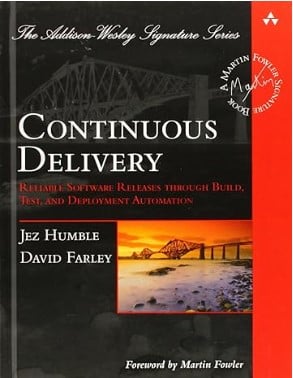
Summary:
A definitive guide to the principles and practices of continuous delivery, the book focuses on automating and improving the software delivery process to achieve rapid and reliable releases.
What You'll Learn:
Best practices in automation for building, testing, and deployment, ensuring rapid, consistent, and frequent releases to users.
Why You Should Read It:
To embrace the modern ethos of software delivery, ensure your software products are always in a releasable state.
Quote From The Book:
“If it hurts, do it more frequently, and bring the pain forward.”
About The Author:
Jez Humble is an advocate for robust software delivery practices. Connect with him, follow his insights on Twitter, or visit his personal website. David Farley, a thought leader in Continuous Delivery, can be found in his insights shared on his website.
10. The Mythical Man-Month: Essays on Software Engineering by Frederick P. Brooks Jr.
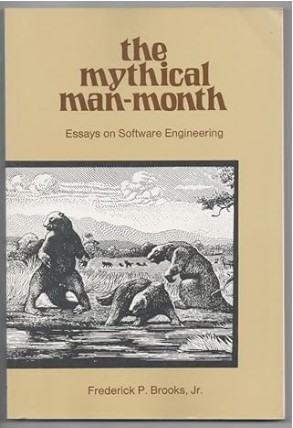
Summary:
A seminal work in the world of software project management, Brooks’ collection of essays offers insights into the human elements of software engineering.
What You'll Learn:
The nuances and challenges of software project management, and the timeless principle that adding manpower to a late software project only delays it further.
Why You Should Read It:
To gain insight into the inherent complexities of software engineering and to avoid common pitfalls in project management.
Quote From The Book:
“Adding manpower to a late software project makes it later.”
About The Author:
Frederick P. Brooks Jr. is renowned for his contributions to software engineering and computer architecture. Explore more about his work and thought leadership on his personal website.
11. Domain-Driven Design: Tackling Complexity in the Heart of Software by Eric Evans
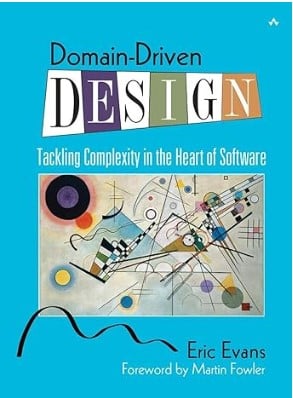
Summary:
In a deep dive into the complexities of software domains, Evans provides a systematic approach to designing software based on the model of the domain.
What You'll Learn:
Techniques to understand and model domain complexities, allowing developers to create effective and cohesive software designs.
Why You Should Read It:
To master the art of understanding and distilling complex domain logic into effective software models and systems.
Quote From The Book:
“When a modeler is forced to construct a radically new model in order to make the system run, deep insights are often gained.”
About The Author:
Eric Evans, a software developer and designer, is an advocate for domain modeling and design. Connect with him on LinkedIn, engage with his insights on Twitter, or discover more on his personal website.
12. Patterns of Enterprise Application Architecture by Martin Fowler
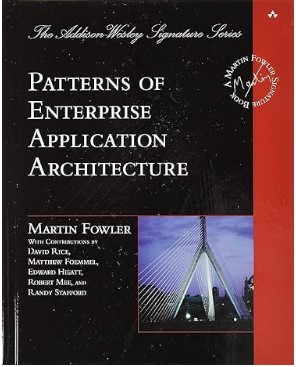
Summary:
Fowler illuminates patterns that represent solutions to common problems in enterprise application clean architecture, serving as a valuable guide for software architects.
What You'll Learn:
A catalog of architectural patterns and how to implement them, providing best practices for enterprise application development.
Why You Should Read It:
To benefit from tried-and-true architectural patterns, enhancing the scalability, maintainability, and performance of your enterprise applications.
Quote From The Book:
“An application is not just the sum of its functionalities; it's also how these functionalities fit together.”
About The Author:
Martin Fowler, a leading voice in software architecture and design, shares insights regularly on Twitter and hosts an array of articles and resources on his personal website.
13. Cracking the Coding Interview by Gayle Laakmann McDowell
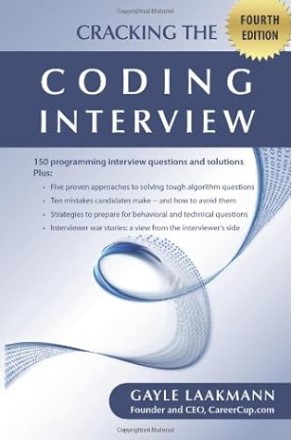
Summary:
A comprehensive guide for software engineering interview preparation, McDowell offers proven strategies to tackle the most challenging coding questions and ace tech interviews.
What You'll Learn:
Essential problem-solving techniques, data structures, algorithms, and strategies to effectively tackle coding interview questions.
Why You Should Read It:
To confidently prepare for software engineering interviews and increase your chances of landing your dream tech job.
Quote From The Book:
"Preparation and practice can turn an interviewer's indifference into enthusiasm."
About The Author:
Gayle Laakmann McDowell, a veteran in tech interviews, shares her knowledge and insights on LinkedIn, posts updates on Twitter, and provides additional resources on her personal website.
14. Effective Java by Joshua Bloch
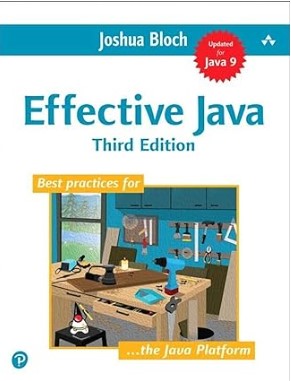
Summary:
An in-depth exploration of the Java development programming language, Bloch presents invaluable dos and don'ts to ensure effective Java programming practices.
What You'll Learn:
Best practices for Java programming, ranging from generics to lambdas, and from collections to streams.
Why You Should Read It:
To enhance your Java programming skills, adopt techniques that are both efficient and elegant.
Quote From The Book:
"API design is not a solitary activity, but a collaborative one."
About The Author:
Joshua Bloch, a key figure in the world of Java, frequently interacts on LinkedIn and shares his thoughts on Twitter.
15. Building Microservices: Designing Fine-Grained Systems 2nd Edition by Sam Newman
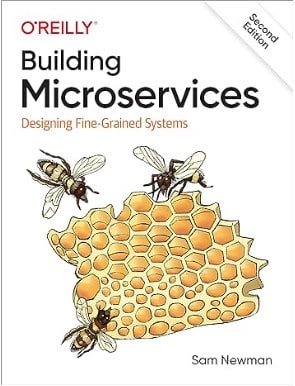
Summary:
An essential read for understanding the microservices architectural style second edition, Newman elucidates the principles for building scalable and easily maintainable systems.
What You'll Learn:
The foundational principles of microservices include decomposition strategies, data integrity, and deployment techniques.
Why You Should Read It:
To adeptly design, build, and maintain microservice-based systems in an era where flexibility and scalability are paramount.
Quote From The Book:
"Microservices allow us to make parts of our system immutable, meaning we can't change them."
About The Author:
Sam Newman is a prominent figure in microservices and cloud-based systems. Engage with him on LinkedIn, follow his latest updates on Twitter, and delve into his writings and events on his personal website.
16. Test Driven Development: By Example by Kent Beck
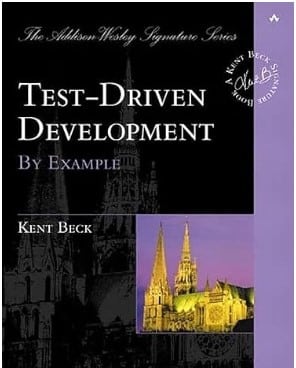
Summary:
Kent Beck showcases the power of Test Driven Development (TDD) by illustrating its methodology step by step, teaching developers to write cleaner, more adaptable, and more efficient code.
What You'll Learn:
The foundational principles of TDD, including red/green/refactor, and how to apply them in real-world scenarios.
Why You Should Read It:
To embrace a software development process that prioritizes quality, adaptability, and confidence in every line of code you write.
Quote From The Book:
"First make the change easy (warning: this might be hard), then make the easy change."
About The Author:
Kent Beck, a pioneer of modern software development practices, is active on LinkedIn, shares thoughts and updates on Twitter, and offers deeper insights on his personal website.
17. Programming Pearls by Jon Bentley
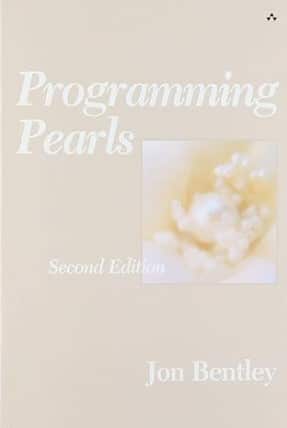
Summary:
Through a collection of essays, Bentley delves into the art of programming, sharing insights, techniques, and challenges that every software developer should be aware of.
What You'll Learn:
The essence of problem-solving in software development books, algorithmic challenges, and performance tuning.
Why You Should Read It:
To hone the artistry and craftsmanship that go beyond mere coding, appreciating the beauty and depth of software design.
Quote From The Book:
"The competent programmer is fully aware of the strictly limited size of his own skull; therefore he approaches the programming task in full humility."
About The Author:
Jon Bentley, a luminary in software engineering, has been shaping the industry for decades.
Want More?
There are endless software engineering resources to help boost your SaaS growth and leadership skills. Subscribe to our newsletter for the latest CTO insights. We'll help you scale smarter and lead stronger with guides, resources, and strategies from top experts!

